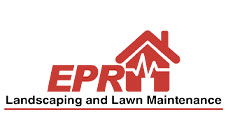Sustainable Landscaping: How to Reduce Your Environmental Impact?
If you’re looking for landscaping services in Fort Lauderdale, it’s important to consider the environmental impact of the work being done. Traditional landscaping practices can be harmful to the environment, but with sustainable landscaping techniques, you can reduce your impact and create a beautiful and healthy outdoor space. In this article, we’ll explore some tips and techniques for sustainable landscaping in Fort Lauderdale, as well as some resources for finding eco-friendly landscapers in the area.
Why Sustainable Landscaping Matters?
Landscaping and lawn care practices can have a significant impact on the environment. Traditional landscaping often involves the use of synthetic fertilizers, pesticides, and herbicides, which can pollute waterways and harm wildlife. Lawn care practices like mowing and watering also consume resources like water and gasoline, contributing to carbon emissions and other environmental issues.
Sustainable landscaping, on the other hand, aims to minimize the environmental impact of landscaping practices. This includes using natural and organic materials, conserving water and energy, and creating habitats for wildlife. By implementing sustainable landscaping techniques, you can create a beautiful outdoor space that is also eco-friendly.
Tips for Sustainable Landscaping
There are many techniques you can use to make your landscaping more sustainable. Here are some ideas to get you started:
Choose Native Plants
Native plants are adapted to the local climate and soil conditions, so they require less water and maintenance than non-native species. They also provide food and habitat for local wildlife. Consider incorporating native plants like saw palmetto, beautyberry, and wild coffee into your landscape design.
Use Organic Fertilizers
Synthetic fertilizers can contribute to water pollution and harm beneficial soil organisms. Instead, use organic fertilizers like compost or natural sources of nitrogen, like alfalfa meal or blood meal. These materials provide slow-release nutrients to your plants and improve soil health.
Install a Rain Garden
A rain garden is a landscaped area that collects and filters rainwater, reducing stormwater runoff and improving water quality. By planting native species in a shallow depression in your yard, you can create a beautiful and functional landscape feature that also benefits the environment.
Install Drought-Tolerant Landscaping
Fort Lauderdale is known for its hot and humid climate, which can make watering your lawn and plants a challenge. By installing drought-tolerant landscaping, you can reduce your water use and create a low-maintenance outdoor space. Consider using plants like succulents, cacti, and native grasses that are adapted to the local climate.
Compost Yard Waste
Composting is a simple way to reduce waste and improve soil health. By composting yard waste like leaves, grass clippings, and twigs, you can create a nutrient-rich soil amendment that will benefit your plants and reduce the amount of waste you produce.
Benefits of Hiring a Sustainable Landscaper in Fort Lauderdale
Hiring a sustainable landscaper in Fort Lauderdale has many benefits beyond just creating an eco-friendly outdoor space. Here are some reasons why you should consider hiring a landscaper who specializes in sustainable landscaping practices:
Expertise in Eco-Friendly Practices
Sustainable landscapers have specialized knowledge in eco-friendly landscaping practices, which means they can help you make choices that are both beautiful and beneficial for the environment. They can advise you on plant choices, soil health, and water conservation, among other things. By working with a sustainable landscaper, you can be confident that your outdoor space is being designed and maintained in a way that supports the health of the environment.
Lower Maintenance and Water Costs
Sustainable landscaping practices often require less maintenance and water than traditional landscaping, which means you can save money in the long run. Drought-tolerant landscaping, for example, can reduce your water usage and lower your water bills. Sustainable landscapers can also help you design a low-maintenance outdoor space that requires less upkeep and reduces the need for fertilizers and pesticides.
Improved Air and Water Quality
Traditional landscaping practices like mowing, trimming, and blowing can contribute to air pollution, while the use of synthetic fertilizers and pesticides can pollute waterways. Sustainable landscaping practices, on the other hand, focus on using natural and organic materials and conserving resources like water and energy. By working with a sustainable landscaper, you can help improve air and water quality in your local area.
Support for Local Wildlife
Sustainable landscaping practices often focus on creating habitats for local wildlife. By using native plants and creating features like bird feeders and bat houses, you can support a variety of wildlife in your outdoor space. Sustainable landscapers can help you design a landscape that provides food and shelter for local birds, bees, butterflies, and other pollinators.
Enhanced Property Value
A sustainable outdoor space can enhance the value of your property. Eco-friendly landscaping is becoming increasingly popular among homebuyers, and a well-designed sustainable landscape can make your property stand out on the market. By investing in sustainable landscaping, you can not only enjoy the benefits of an eco-friendly outdoor space but also potentially increase the resale value of your property.
In conclusion, hiring a sustainable landscaper in Fort Lauderdale can offer many benefits beyond just creating an eco-friendly outdoor space. Sustainable landscapers have specialized knowledge in eco-friendly practices, which can help lower maintenance and water costs, improve air and water quality, support local wildlife, and enhance property value. Consider working with a sustainable landscaper to create a beautiful and eco-friendly outdoor space that benefits both you and the environment.
